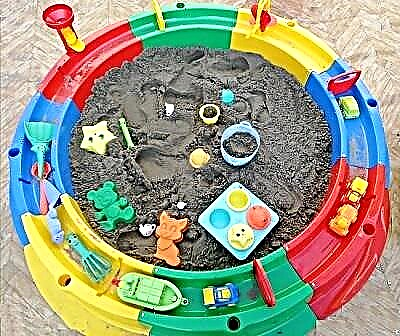Many parents from time to time catch their children that they are not telling the truth. Toddlers tend to come up with different stories, embellish facts and fantasize. If you do not react to this in any way, the child will continue to lie at an older age and grow up to be a pathological liar. How to wean a child from lying? Use the advice of psychologists - they will help you establish a trusting relationship with your son or daughter and make sure that the child always tells you the truth.

Children's lies - the norm or the pathology?
According to a number of psychologists, the tendency to lie is a normal stage in a child's development. Everything that the baby sees, hears and feels in the first years of life is new and incomprehensible to him. The child has to process a lot of information, learn to use it every day.
For an adult, it is obvious where the fact is, and where is fiction, but the kid has just to understand this. His logical thinking is at the stage of formation. Therefore, the baby sincerely believes in Santa Claus, babayka and fairy tales that his parents tell him. If the child cannot understand or explain something, he uses his imagination. At certain times, reality and fantasy mix with each other. As a result, the parents catch the baby in a lie, although the child himself is sincerely sure that he is telling the truth.
It's another matter if children deliberately begin to lie. This usually happens if adults forbid the child to do something. In this case, the kid begins to think about how to achieve what he wants, and the most obvious way is to cheat. Children's logic is something like this: "If it is impossible this way, it will become possible if I say it differently." Therefore, kids begin to deliberately lie and manipulate adults. It is important for parents to take action in time, otherwise an innocent childish deception will turn into a habit of always achieving what they want with the help of lies.
Reasons for children's lies
Often babies tell lies, as they mistake their fantasies for reality. However, children's lies can be quite deliberate. There are a variety of reasons leading to it, including:
- the desire to get what parents forbid;
- lack of attention from parents or a desire to appear better than he really is;
- fear of punishment for wrongdoing;
- self-justification;
- dissatisfaction with living conditions;
- not meeting the expectations of the parents;
- pathological lie.
Let's consider the reasons for children's lies in more detail, so that it would be easier for parents to understand what is happening to their child.

Striving to get what parents forbid
Example: the child has already eaten sweets, but wants more. He tells his mom that dad has allowed him to take candy (although he hasn't come home from work yet). “I didn't know what time it was, so I was late for home” ... and so on
Solution: stop banning everything. Kids begin to lie if they constantly hear the word "no", because this causes a protest. Therefore, they try to use lies to defend their interests. Reconsider the prohibitions, reduce their number and leave only those that directly relate to the child's health, safety, educational issues, regimen, and nutritional traditions. Only if you give your child more independence will he be able to learn to take responsibility for his actions. It will not be superfluous to tell the kid that you can get what you want not only through deception. Tell him that you just need to ask for the same toy, explaining why you need it so badly. In addition, the child must understand that it is important to behave - then adults will reward him for obedience.
Lack of parental attention or a desire to appear better than he really is
Example: the child began to talk seriously about his superpowers - incredible strength, dexterity, intelligence, courage, endurance - although it is obvious to an adult that the child is trying to pass on wishful thinking.
Solution: how should parents feel about it? How to lie or how to fantasy? If the kid is lying and trying to pass off wishful thinking, this is an alarming signal. He points out that the child is looking for ways to interest loved ones, which means that he lacks warmth, affection, attention and support from the parents. Let your baby feel your love. Give your child more attention and develop your child's abilities. Explain that each person has their own talents. Someone skate well, someone sings or dances beautifully, and someone knows everything about the Egyptian pyramids or space. So you need to develop and show your real abilities, and then no one will consider a liar or a braggart. Read books and children's encyclopedias with him, walk, communicate. Take your child to a club or sports section. This way he will develop his real abilities, become more self-confident and be able to show off real achievements.
[sc name = ”rsa”]
Fear of punishment for wrongdoing
Example: the child has broken the vase and is trying to shift the blame onto the cat or younger brother so that he is not scolded, deprived of something good, or, worse, not beaten.
Solution: be calmer in your relationship with your baby, punish him only for serious offenses, but not too severely. If a child is shouted at for the smallest offense, frightened by flogging, constantly deprived of sweets and watching TV, he begins to fear his own parents. Too often and severely punishing the child, parents provoke his desire to avoid them in any way. Make decisions based on the fact: if the kid breaks the cup - let him clean it up, if he offended someone - let him apologize, if he broke the toy - let him try to fix it, get a bad mark - you need to work out and fix it. These conditions are true. They do not offend the dignity of the little person, so the need for lies disappears by itself.

Self-justification
Example: the child did a bad thing and tries his best to justify himself - mumbles something unintelligible, finds thousands of excuses, blames other people to justify himself and tells how much he was offended (“He started first”). Then a story is given about how the abuser started first, what offenses he caused, etc. Note that the "abuser" tells a similar story.
Solution: support your child in any situation and discuss everything that happens in his life with him. Childhood lies aimed at self-justification are very difficult to eradicate. Pride prevents a child from admitting guilt, so he looks for ways to whitewash himself. Talk to him gently and friendly, explain that you will not stop loving him, even if he was the first to take the toy from another boy or got into a fight. When a child is confident that his parents will support him in any situation, he will begin to trust them more.
Dissatisfaction with living conditions
Example: the child began to invent incredible stories about his parents, that his parents are very rich, they constantly give him toys, they take him to the sea, to distant countries, which dad is often shown on TV. These dreams of a better existence speak of the child's dissatisfaction with his social status. A child can understand such things as early as 3-4 years old, and at 5 years old he will already be well guided in who is rich and who is poor.
Solution: try to fulfill the child's wishes at least sometimes and fight against childish greed. Already at the age of 3-4 years, children begin to realize that people differ in social status, and by the age of 5, a clear understanding of wealth and poverty comes. There is always a child in the kindergarten who has received more gifts for his birthday, who spent the summer more interestingly with his parents. This causes envy, and the baby begins to voice his dreams, passing them off as reality.
If a child is lying because he considers himself to be worse than other children due to a lower social status, look for an opportunity to give him at least part of what he so dreams of. Maybe not "just like that", but so that the child makes a little of his own efforts ... With regard to "greedy" preschoolers who unrestrainedly want all the toys on earth, explain that this is unrealistic, but you can get good gifts from time to time.

Failure to meet parental expectations
Example: the girl loves to draw, and her mother sees her as a musician; the boy wants to enroll in a radio circle, and dad sees him as a talented translator. While parents are away from home, they paint and construct, and then deceive that they diligently studied music or English. Or a child with quite average abilities, whom parents want to see as an excellent student, talks about the bias of teachers, justifying his low level of success.
Solution: unfortunately, it happens that the expectations of the parents are a heavy burden for the children. Often adults want children to do what they didn’t do. Think about whether your expectations are in conflict with the inclinations and interests of the child? It is unfair to force him to show abilities and achieve goals for you (in accordance with your unfulfilled childhood dreams), "for you in childhood." For example, my mother could not become a translator, and now she makes her son learn a foreign language. These expectations may not be in the best interests of the baby. Parents should listen to the wishes of their children. Not wanting to upset a loved one, the child will begin to lie and dodge, but still will not achieve success in an unloved occupation. It is better to let your child go his own way - then there will be less deception in your family.
Pathological lie
Example: the child constantly uses lies for selfish purposes - he lies that he did his homework so that he was allowed to go for a walk, shifts the blame onto another to avoid punishment, etc.
Solution: specialist help is required. Pathological lies are a rather rare occurrence in childhood. If a child is constantly cheating, trying to manipulate others, then he needs to be shown to a psychologist. He will help you find a solution for your specific case.

How does lying manifest in children of different ages?
Parents can hear the first lie from their 3-4 year old children. By the age of 6, the child already gives an account of his actions and realizes that he is lying. However, in general, it can be difficult to understand whether a toddler is knowingly lying or really believes what he has in mind.
As the child grows up, the motives that push him to deceive also change:
4-5 years old. Children of this age have a vivid imagination. They still believe in fairy tales, magic, and often confuse reality with a fictional world. Often preschoolers lie unconsciously - they just wishful thinking (these are the features of their development). Therefore, what a child says at 4-5 years old cannot be regarded as a lie. You need to treat this as a fantasy.
7-9 years old. At this age, all actions and words of a person become conscious. Schoolchildren are already able to draw the line between their fantasies and reality. They begin to deceive on purpose, exploring the possibilities of lying, using it for their own purposes. If the child begins to lie often, parents should be wary. Serious problems can be hidden behind the constant lies.
How to explain to a child that lying is bad?
Childhood lies are a problem that needs to be addressed. If you notice that your child is trying to use lies for his own benefit, first of all, you need to analyze the child's behavior, talk to him frankly and try to understand what is the reason for dishonesty. After all, children usually do not lie just like that, certain circumstances always push them to this. Once you understand them, you can find a way to stop the childish lies.
Use the following tips to convey to your child that cheating on other people is not good:
- Talk with your child more often, discuss topics of good and evil. Situations from movies, cartoons, fairy tales can be cited as examples. The child should understand that happiness, success and good luck accompany positive characters, and good always triumphs over evil.
- Prove the inadmissibility of lying by personal example. If the dad, while at home, asks the mom to answer the call and say that he is not, the child develops a loyal attitude towards lies. Do not allow such situations, demand honesty from household members.
- Tell your child that there is a “polite lie” that involves treating people tactfully so as not to offend them (for example, when they don't like a birthday present).

Recommendations of psychologists for raising an honest child
Psychologists give parents a number of helpful tips to help them cope with children's lies:
- Distinguish fantasy from deception. Remember that preschoolers often have a blurry line between fiction and reality. If the kid's imagination is too much played out, perhaps he simply has nothing to do - diversify the child's leisure time.
- Don't punish cheating. Your screams, indignations and scandals will only tell the child that the lie should be hidden more strongly and, as a result, will lead to the fact that the child will not stop lying, but will only begin to better hide his lie.
In order for the need for lies to disappear, the child must be sure that close people:
- trust him and each other;
- never humiliate him;
- take his side in a controversial situation;
- will not be scolded or rejected;
- will support in any difficult situations and give good advice;
- if punished, it is fair.
It is better to teach a child not to lie than to punish him all the time. Do you want your child to be honest? Make the truth a cult in your family. Praise your child for being honest.
- 5 main reasons why a child is lying
- Raising an honest child
- When a child's fantasies become dangerous



